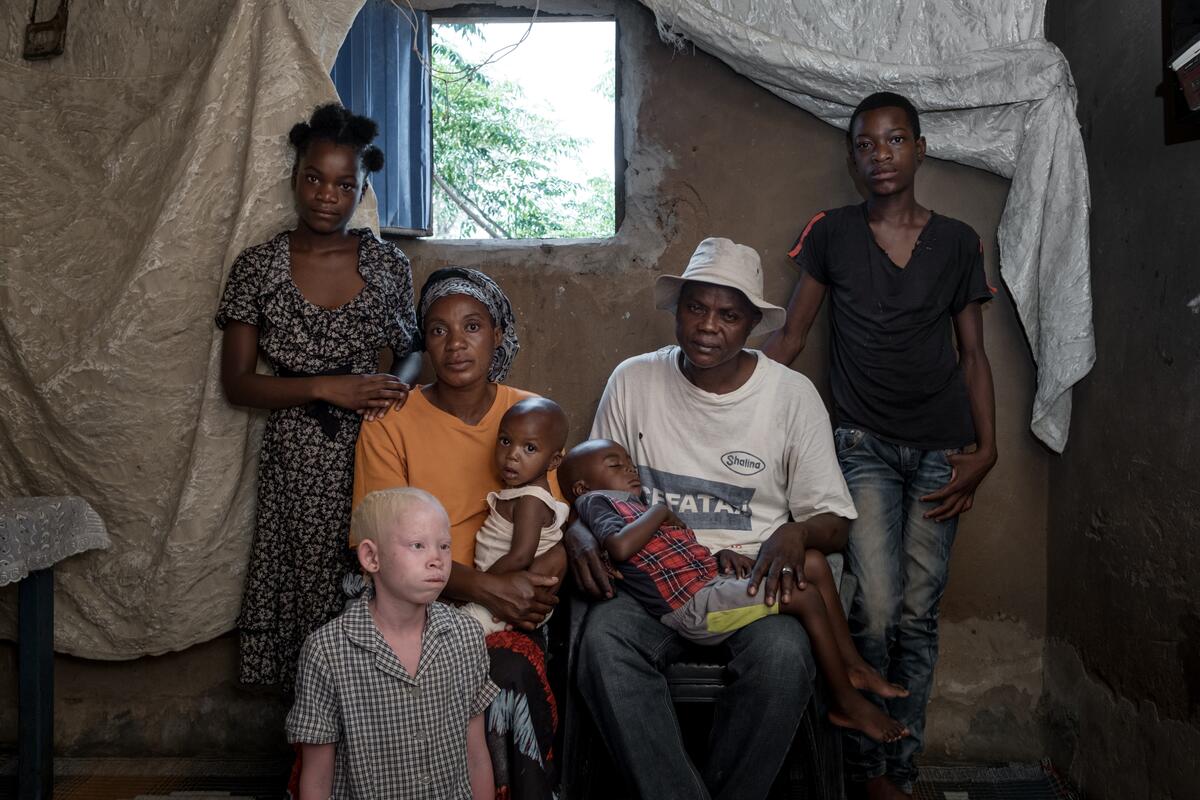Diner gives Burundian refugee a taste of self reliance

Diner gives Burundian refugee a taste of self reliance
Every morning, Odette Bucumi* wakes up long before sunrise so she can be at her tin-roofed restaurant by 5 a.m. Once she gets to work, she bakes her famous 'Burundian chapati' flatbreads and boils water for tea and coffee.
Later, for lunch, she cooks ugali – an East African staple food made of flour and water – served with potatoes, beans, and meat sauce. Nothing costs more than the equivalent of US$.50.
Odette, 34, fled her home in Burundi in 2010 after her husband disappeared in the turmoil ahead of the presidential elections. With her two small children, she escaped over the border into the Democratic Republic of the Congo (DRC), ending up in the largest city in the east, Goma.
"This job really helps me to be independent. I'm able to pay the rent ... and buy clothes for my children."
“When I arrived in DRC, I was crying everyday thinking about my husband and how I would survive with two children in a foreign country," she said. "At the beginning, it was very difficult and I was about to give up. There were days I returned home with nothing and my children were so sad."
At home in the Burundian capital, Bujumbura, she ran a restaurant. That inspired her to do the same in Goma, and it has proven a great success.
Among the neighbourhood's car and lorry drivers, motorbike taximen, security guards, mechanics, and shop workers, the restaurant run by 'the Burundian', as she is known, is very popular. It has also given Odette a vital measure of control over her life and finances.
"I'm so proud because this job really helps me to be independent," she says. "I'm able to pay the rent for my house, to pay school fees, and buy clothes for my children, to feed them and respond to their needs without depending on anyone. My children are my whole life, and I dream of a better future for them. I decided not to give up, and to fight for their wellbeing.”
Her success is also something that UNHCR, the UN Refugee Agency, recognizes as key to its role of protecting and supporting over 450,000 refugees in DRC, including 36,000 from Burundi.
UNHCR is redoubling efforts to help them become self-reliant, providing training, startup funding and equipment. While in rural areas, this usually means gaining access to land and tools for farming, in cities the support is more focused on support for small businesses. Urban refugees, many of whom already have some professional skills, learn how to draw up business plans, and gain the means to put them into practice.
“This investment can have enormous benefits, especially for vulnerable women.”
“This investment can have enormous benefits, especially for vulnerable women”, says Clementine Cremer, a Protection Officer with UNHCR in DRC. “We want to help them to meet their basic needs in situations where they have no other support.”
Cremer said the women often live in extreme poverty, far from home, without a family network that protects them. In order to survive, they can resort to desperate measures, such as prostitution. “They easily become victims of exploitation and abuse,” she said.
Odette is among 71 heads of households in Goma – the breadwinners for over 300 family members – that UNHCR has helped over the past three years with income-generating projects. "When UNHCR decided to support us, I decided to take advantage of that and to start a new life," she says.
Odette believes she is an example both to other refugees, whom she wants to follow in her footsteps, and to their Congolese hosts. She dreams of opening a bigger restaurant – not one in a small shack but a really fancy one -- and then being able to send her children to university.
She has earned more than money from her successful business. It has given her self-esteem and the certainty that she can provide for herself and her children in tough times. “Even when I feel things are not going well, I prefer to withdraw money from my savings account rather than to go to UNHCR and ask again for support."
*Name changed for protection reasons.














